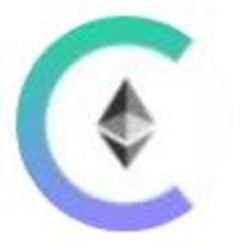In her monthly Expert Take column, Selva Ozelli, an international tax attorney and CPA, covers the intersection between emerging technologies and sustainability, and provides the latest developments around taxes, AML/CFT regulations and legal issues affecting crypto and blockchain.
At the end of 2021 — a year in which Bitcoin (BTC) and Ether (ETH) rose 100% and 300%, respectively — global crypto rating company Coincub ranked Singapore as the most crypto-friendly country in the world due to its “robust economy, positive legislative environment, and high rate of cryptocurrency adoption.”

Cryptocurrency consumer protection law
Singapore’s regulators have done a great deal to nurture the blockchain industry. Its No. 1 ranking by Coincub was proven right by the prompt regulatory measures implemented by the Monetary Authority of Singapore (MAS), the country’s main financial regulatory body, when the cryptocurrency market began crashing during January 2022 and entered bear market territory.
During mid-January, Singapore’s MAS enacted consumer protection laws for investors exposed to constant reminders of digital assets via billboard ads or crypto ATMs, banning all cryptocurrency-related advertisements and ATMs in public spaces.
Related: Clampdown on crypto ads: A one-off or a new phase of global regulation?
In a statement, MAS said that while it “strongly encourages” blockchain technology development and innovative crypto use cases, cryptocurrency trading is “highly risky and not suitable for the general public.” As such, cryptocurrencies should not be portrayed “in a manner that trivialises the high risks of trading” them.
Payment Services Act, January 2020
In January 2020, Singapore’s Payment Services Act came into effect as a response to the Financial Action Task Force’s 2018 update to its Anti-Money Laundering (AML) and Combatting the Financing of Terrorism (CFT) cross-border risk guidelines for cryptocurrencies. The Payment Services Act is a flexible framework for the regulation of payment systems and payment service providers in Singapore that establishes registration requirements along with AML and CFT guidelines for cryptocurrency businesses.
MAS has been selective in issuing licenses to cryptocurrency businesses, with a large number of applicants failing to receive licenses to operate in the country. DBS Bank — Singapore’s largest bank — as well as OCBC Bank, IBM and two institutional-grade Bitcoin funds launched by Singapore-based fund manager Fintonia Group are among those that received licenses to operate.
Initial coin offerings
In response to a wave of initial coin offering launches, MAS first published guidelines in August 2017 indicating that if an ICO was deemed to be issuing a security, it would be subject to regulation. This was followed by MAS issuing “A Guide to Digital Token Offerings,” which provides further explanation and direction on the regulation of cryptocurrencies in Singapore.
Taxation of cryptocurrencies
Singapore is a low-tax jurisdiction. According to Desmon Teo and Lee Vin Wee of Big Four accounting firm Ernst & Young, the Inland Revenue Authority of Singapore exempted digital payment tokens from goods and services tax effective Jan. 1, 2020. Since there are no capital gains taxes in Singapore, capital gains derived from the sale of cryptocurrencies are not taxable either.

Related: The major tax myths about cryptocurrency debunked
Blockchain adoption
Singapore, which is a major financial center and shipping hub and has the tenth-highest GDP per capita, has emerged in a short period as a global cryptocurrency hub amid its favorable regulatory and tax infrastructure and by utilizing blockchain technology in many areas of its economy. MAS is bullish on the potential of crypto and blockchain, particularly in expediting cross-border payments and trade finance, but frowns on cryptocurrencies as investment assets for retail investors.
Cryptocurrency exchanges
According to one survey, 43% of Singaporeans own cryptocurrency. In comparison, the overall crypto ownership rate is 11.3% in South Africa, 10.5% in the United States and 9.8% in Sweden.

Retail investors can trade cryptocurrencies on a multitude of crypto exchanges, including Coinbase, Kraken, FTX, Bybit, KuCoin, Vauld, Independent Reserve, Gemini, Coinhako, Tiger Brokers, Futu’s Moomoo and Syfe. Binance, the world’s largest crypto exchange, acquired an 18% stake in the Singapore-regulated private securities exchange Hg Exchange before announcing it would discontinue its operations at Binance Singapore by mid-February 2022. This announcement was followed by a special report by Reuters detailing Binance’s opaque corporate structure coupled with weak global AML and CFT compliance.
Huobi, the world’s sixth-largest crypto exchange, also announced it would be shutting accounts in Singapore by the end of March 2022. SIX Digital Exchange — a sister company of SIX Swiss Exchange, which operates Switzerland’s national stock exchange — announced a partnership with SBI Digital Asset Holdings, a division of Japanese banking and financial services giant SBI Group, to establish a crypto exchange and central securities depository in Singapore. The joint venture, called Asia Digital Exchange, is designed to create a regulated, global liquidity pool for digital assets between Asia and Europe.
Banking
A multitude of big banks — including Barclays, BNP Paribas, BNY Mellon, Citi, Deutsche Bank, HSBC, Orient Securities, Standard Chartered, Societe Generale and United Overseas Bank — have joined Marketnode, a digital asset joint venture of major investment holding company Singapore Exchange (SGX) and government-backed investment firm Temasek. The goal is to explore the use of blockchain technology focused on capital markets workflows through smart contracts, ledger and tokenization technologies. Marketnode also partnered with Singapore-based fintech firm RootAnt Global and United Kingdom-based blockchain platform SETL to focus on fixed income and multi-asset end-to-end infrastructure development.
Grab — a Singapore- and Indonesia-headquartered company focused on mobile applications for transportation, food delivery and cryptocurrency payments — and Singapore Telecommunications have each acquired a 16.3% stake in PT Bank Fama International in order to pursue digital banking opportunities in Indonesia. The two collectively secured a digital banking license in Singapore.
Cap and trade and renewable energy trading exchanges
Efforts for a green recovery from the COVID-19 pandemic have been gathering speed around the world, particularly following the COP26 conference in November 2021. Singapore is vulnerable to rising ocean levels as a result of global warming, with 30% of the landmass less than five meters (16 feet) above sea level.
Singapore uses natural gas to generate power, and the nation’s Sunseap Group, a solar energy system developer, plans to spend $2 billion to build the world’s largest floating solar farm in the Indonesian city of Batam, doubling its renewable energy capacity. Temasek is collaborating with DBS Bank, SGX and Standard Chartered to create a blockchain-based exchange, Climate Impact X, to trade carbon credits. The country already hosts a blockchain-powered exchange for renewable energy trading from utilities provider SP Group.
Related: UN’s COP26 climate change goals include emerging tech and carbon taxes
Green cryptocurrency mining companies
Cryptocurrency mining is the process of obtaining new tokens by solving complex calculations performed by powerful computers, which demand a large amount of electricity to function. China, once the world’s largest crypto miner, cited the instability of cryptocurrency values when it shut down crypto miners in May 2021, as the profitability of mining companies is tied to the price of cryptocurrencies.

Bitdeer, Saitech, Sharemine AI and BitFuFu are all Singapore-based cryptocurrency mining companies with mining operations outside the country. Bitdeer and Saitech are seeking to be publically listed on Nasdaq. Saitech recycles the waste energy from mining for use in residential, agricultural and industrial applications. Bitdeer and Sharemine AI mine with clean energy generated from hydroelectric and solar power.
Shipping
A recent study carried out by Nanyang Technological University in Singapore examined Singapore’s and China’s shipping industries to show that digitizing shipping documents could reduce more than 99% of the carbon emissions that result from the use of paper documents.
Related: How will blockchain technology help fight climate change? Experts answer
PSA International, the world’s largest container port operator — with flagship operations in Singapore and Antwerp and locations in 26 countries — is exploring using blockchain and digital assets for decarbonization goals. The company is a participant in supply chain blockchain platforms TradeLens and GSBN and an indirect minority shareholder in Global eTrade Services, which offers its Open Trade Blockchain for documents. PSA signed a deal with Singapore consulting firm RHT Group of Companies for an environmental, social and governance project.
Startups
Tribe Accelerator is a blockchain accelerator launched by Trive Ventures, a Singaporean venture capital firm, with the core goal of increasing and streamlining blockchain adoption in Asia, beyond financial services applications. It is the first blockchain accelerator supported by the Singaporean government (it is backed by MAS and Temasek).
Other backers include Citibank, IBM, Intel, BMW, Korea Investment Partners, Mandiri Investment Management Singapore — a subsidiary of Indonesian state-owned Bank Mandiri — Greg Kidd — an early Twitter, Coinbase and Square investor — and Hong Kong-based investment firm Stellar Partners. So far, Tribe has funded more than 30 startups with a combined value of more than $1 billion. In November 2021, Microsoft launched its Singapore GreenTech Challenge to accelerate progress in startups in an effort to implement Singapore’s Green Plan.
Central bank digital currency
Singapore, through its Project Ubin, is one of 87 countries exploring a central bank digital currency (CBDC), according to the Atlantic Council.

MAS has been testing CBDCs and discussing the creation of multiple CBDC arrangements to improve the speed, cost and transparency of cross-border payments. It has developed a prototype multi-currency wholesale settlement network to enable the issuance and distribution of various CBDCs on a common network in partnership with China.
Related: Asian CBDC projects: What are they doing now?
Nonfungible token
Singapore Art Week 2022, which ran from Jan. 14 through Jan. 23, hosted TZ APAC, which celebrated Asian digital artists in an industry-first nonfungible token (NFT) showcase at the S.E.A. Focus showcase.
ArtScience Museum in Singapore — the first museum in Asia with major exhibitions to integrate art, science, culture and technology — opened its newest exhibition, “Radical Curiosity: In the Orbit of Buckminster Fuller,” in conjunction with the final weekend of Singapore Art Week, according to Adrian George, director of programs, exhibitions and museum services at ArtScience Museum.
Known as the “grandfather of the future” by his admirers, Richard Buckminster Fuller was an American architect, systems theorist, inventor and author who predicted a technology similar to blockchain, on which cryptocurrency is based. In a video interview from 1967, Fuller states:
“I’ll have to talk about something which will be one of the very big, new realizations by 2000 AD, which will be a realistic scientific accounting system of what is wealth. […] Wealth is energy.”
While ArtScience Museum did not offer NFTs of the “Radical Curiosity: In the Orbit of Buckminster Fuller” exhibition, here is one of Fuller created by Freeos and shared on Twitter:
Just dropped this Buckminster Fuller #NFT to all of our #Freeos Beta Testers. Thank you everyone!https://t.co/yBXH5ZRJEu pic.twitter.com/zmyRKu64R1
— Freeos (@Freeos_dao) October 6, 2021
The views, thoughts and opinions expressed here are the author’s alone and do not necessarily reflect or represent the views and opinions of Cointelegraph.
Selva Ozelli, Esq., CPA, is an international tax attorney and certified public accountant who frequently writes about tax, legal and accounting issues for Tax Notes, Bloomberg BNA, other publications and the OECD.




























